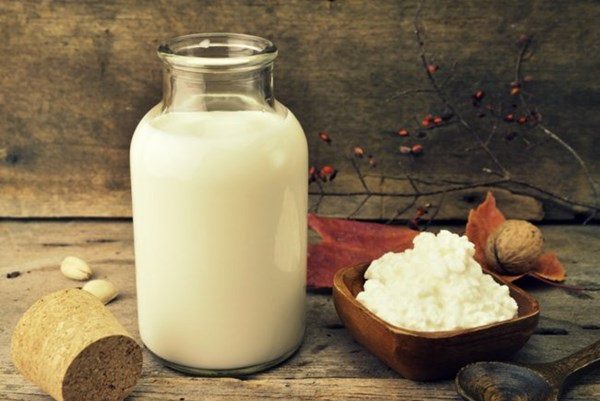Raw milk is back in the spotlight
September 2, 2023 by DarcieRaw milk is getting a lot of attention again due to a plethora of TikTok videos and endorsements by celebrities touting the alleged health benefits of drinking the unpasteurized dairy product. Tom Parker-Bowles recently wrote that raw milk has endured “no pasteurisation, homogenisation or standardisation, meaning it still contains the full complement of vitamins, minerals and natural digestive enzymes, as well as providing the most lusciously creamy mouthful of pure dairy delight; rich, sweet and voluptuously full-bodied.”

Proponents of raw milk say it is a nutritional powerhouse, and claim that it’s a better choice for people who are lactose intolerance or who have autoimmune and allergic conditions. But there lurks a dark side to the beverage. It can harbor harmful bacteria such as listeria, campylobacter, salmonella, and E coli. Every year hundreds of people are sickened by contaminated raw milk. According to the CDC, “Unpasteurized milk, consumed by only 3.2 percent of the (U.S.) population, and cheese, consumed by only 1.6 percent of the population, caused 96 percent of illnesses caused by contaminated dairy products.” They don’t recommend that anyone drink raw milk, especially children and those with compromised immune systems, including the elderly. Advocates say those fears are overblown, the data is flawed due to anti-raw milk bias, and that the percentages of people who fall ill from raw milk are miniscule relevant to the number of those who drink it.
The EYB Library contains about 150 recipes for raw milk products, ranging from yogurt to sorbet to various types of cheese. In some of the recipes the raw milk is cooked, which would render it safe, but most keep the milk in its natural state.
When I was very young, my grandparents milked cows on their small farm, and my grandfather once filled a small tin cup with milk straight from the cow and gave it to me. I tasted it and decided that raw milk wasn’t for me; I preferred the more mildly flavored milk that had been run through the pasteurizer and refrigerated. I wonder if I would now enjoy the more robust flavor of raw milk, but I am not interested enough to seek it out, even though it is available for sale in my state.
Categories
- All Posts (6940)
- Antipasto (2135)
- Author Articles (247)
- Book News (935)
- Cookbook Giveaways (983)
- Cookbook Lovers (257)
- Cooking Tips (109)
- Culinary News (299)
- Food Biz People (552)
- Food Online (791)
- Holidays & Celebrations (272)
- New Cookbooks (149)
- Recipes (1500)
- Shelf Life With Susie (231)
- What's New on EYB (133)
Archives
Latest Comments
- eliza on What foods do you look forward to the most for each season?
- kmwyman on Rooza by Nadiya Hussain – Cookbook Review and Giveaway
- Maryd8822 on The Golden Wok – Cookbook Giveaway
- Dendav on Danube Cookbook Review and Giveaway
- sanfrannative on Rooza by Nadiya Hussain – Cookbook Review and Giveaway
- darty on Danube Cookbook Review and Giveaway
- Atroyer7 on Danube Cookbook Review and Giveaway
- demomcook on What foods do you look forward to the most for each season?
- demomcook on Danube Cookbook Review and Giveaway
- Darcie on How cookbooks can help build resilience